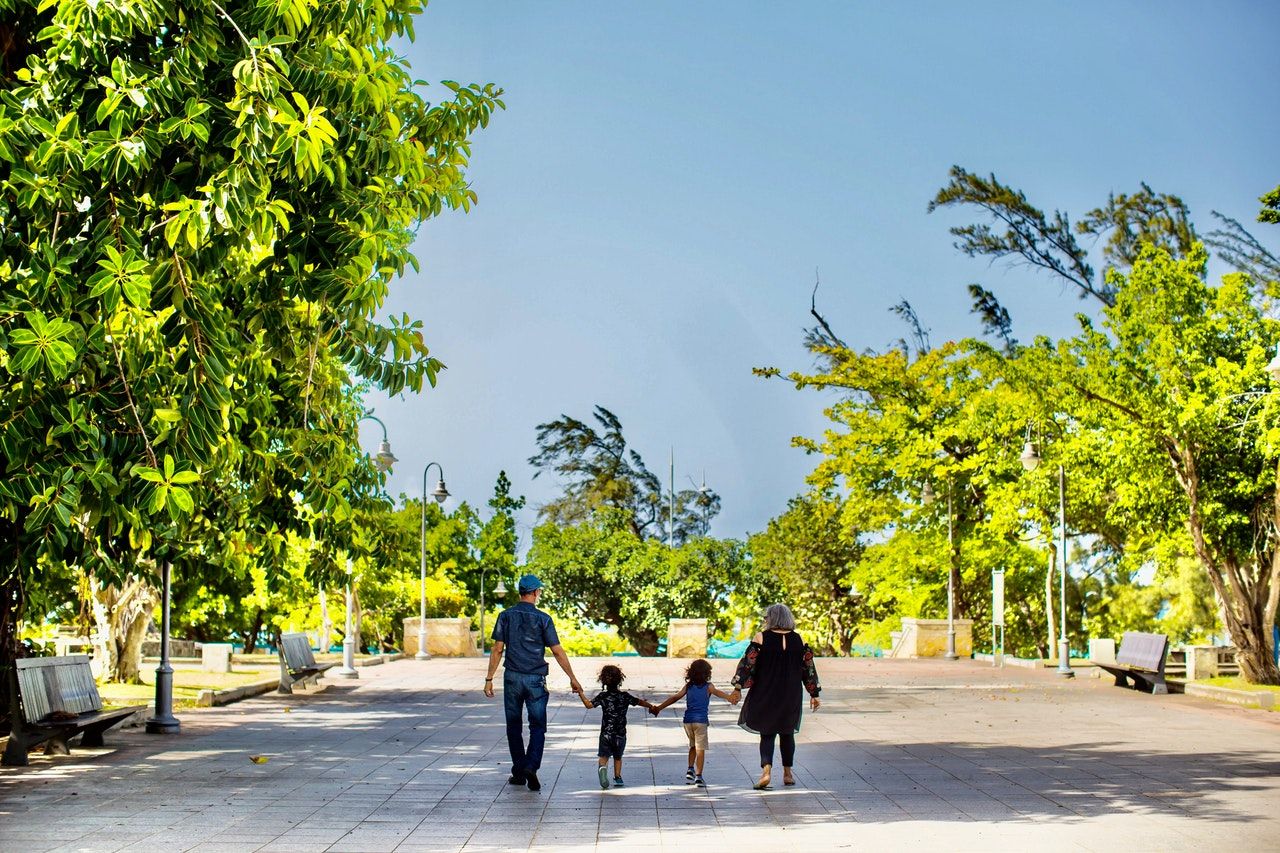Montessori Parenting in the 21st Century

What does it mean to be a Montessori parent? Can it be balanced with busy lives, complicated schedules, limited budgets and varying resources?
When parents start discovering and exploring the Montessori approach for their family, sooner or later they run into the infamous Pinterest Trap. Online (or through parent meet ups), they find a maddening array of educational activities, hand-made materials, brilliant arts and crafts and more… that they just know they will not do, be it for lack of time, energy and resources, or even desire. After a while it may seem that to be a Montessori parent, you need to stay at home, have a workshop filled with power tools, spend every night preparing materials, and definitely have a membership (or shares!) in the local craft store… right?
Today, I am here to tell you as clearly and loudly as possibly: no, you don’t. Material trays and language cards and activity stations can all be lovely and beneficial, but they don’t define Montessori parenting.
There is more than one way to do anything, and there is no prescribed way that Montessori parenting must look like outwardly; after all, one of its strongest points is that it adapts to the lifestyles and cultures around the world, not the other way around. You can rigorously follow Montessori practices and principles (and your child can reap all of its benefits) even if you have two left hands, work full time, and never even touch a laminating machine.

Explore the fundamentals of Montessori parenting with this free video by Sylvia Arotin, offering insights and strategies to empower and educate your child.
What Makes a Montessori Parent?
For better or worse, there is no activity or item to purchase (or make) that will make your household Montessori. One could own the entire material curriculum without getting one step closer to the philosophy. Instead, the “secret” is all about how you live, interact and communicate with your child. In order to be a “Montessori Parent”, you must:
- Respect your child as both the person they are and the person they are becoming. Your child may be small, naïve and inexperienced, yet they are at the same time a fully realized human being (main difference from an adult being the enormous amount of potential they hold!). They deserve every bit as much respect and dignity as anyone else, and they deserve it from you, specifically. Grace and Courtesy, especially, is not just something your child needs to learn, but something which must be extended to
- Share your home and your life with your child, allowing them to participate to the fullest of their ability. It is now their home, and their life, too – one which you can help prepare and guide, but not own. It is a universal human need to have a real and meaningful role in our community, to see the difference and influence we have on our surroundings, and children are no different in this regard. In practice, I invite you to look at your daily activities (work and play, taking care of yourself and of your home, planning, thinking, organizing) and see where you might invite and involve your child in them.
- Allow your child to be themselves, and by themselves. Independence is the magic word of the Montessori philosophy, and it applies to every aspect of life, not just practical skills. Independent thought, work, choices of activity – a child needs to experience all of that. Allow them to be by themselves, to get lost in their own work and play without interruption; to overcome their own challenges, explore their ideas and interests, even enjoy their own company. It is not Montessori to be “actively educating” or optimizing your child’s every waking moment – the furthest thing from, really!
- Get to know your child, so you can be there when they truly need you. There is no way to know, ahead of time, what the right balance of freedom and supervision, closeness and independence will be at any point of your child’s life. What kind of person they will be, what struggles and challenges they will have, and what exactly will they need from you? Commit to being intentional in your parenting and study of your child. Strive to understand and respect your child’s development and where they are at any given time. There is no better way to get to know them than to observe, both directly and indirectly.
What does this all look like in practice, and how to overcome most common obstacles that arise in contemporary Montessori parenting? That will be the subject of next week’s article.
Montessori Beginnings
YOUR ULTIMATE
MONTESSORI PARENTING COURSE
FOR ZERO TO THREE
Gain clarity and confidence in your parenting to raise a resilient, independent and joyful child.


